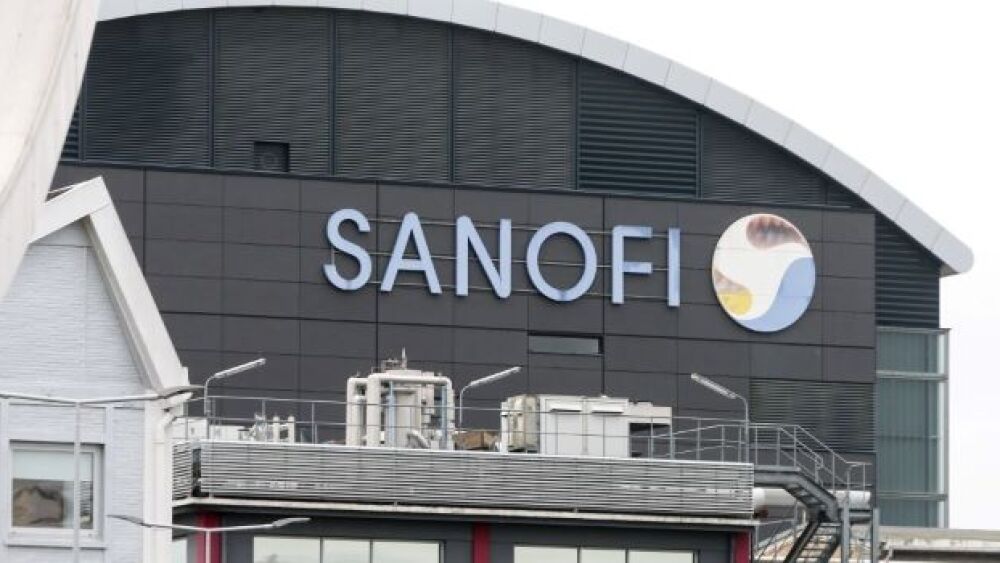On Monday, the companies announced their checkpoint inhibitor Libtayo (cemiplimab-rwlc) won Food and Drug Administration approval for lung cancer.
Michel Stoupak/NurPhoto via Getty Images
The longtime partnership between Regeneron and Sanofi continues to yield fruit. On Monday, the companies announced their checkpoint inhibitor Libtayo (cemiplimab-rwlc) won Food and Drug Administration (FDA) approval for lung cancer.
Libtayo was approved for the first-line treatment of patients with advanced non-small cell lung cancer (NSCLC) whose tumors have high PD-L1 expression. Under the criteria set forth by the regulatory agency, NSCLC patients who receive Libtayo must either have metastatic or locally advanced tumors that are not candidates for surgical resection or definitive chemoradiation, and the tumors must not have EGFR, ALK or ROS1 aberrations, Regeneron said in its announcement.
Lung cancer is the leading cause of cancer death worldwide. In 2020, an estimated 2.2 million and 225,000 new cases were diagnosed worldwide and in the U.S, respectively. Approximately 84% of all lung cancers are NSCLC, with 75% of these cases diagnosed in advanced stages and an estimated 25% to 30% of cases expected to test positive for PD-L1 in 50% of tumor cells.
The approval was based on data from the Phase III clinical trial, called EMPOWER-Lung 1 that demonstrated the drug extended overall survival compared to chemotherapy in study patients. In this patient group, Libtayo reduced the risk of death by 43% compared to chemotherapy. This was achieved with a greater than 70% crossover rate to Libtayo following disease progression on chemotherapy, the companies said.
The primary endpoints were OS and PFS, and secondary endpoints included overall response rate, duration of response and quality of life. The trial included 710 patients who had either previously untreated metastatic NSCLC (Stage IV) or locally advanced NSCLC (Stage IIIB/C) who were not candidates for surgical resection or definitive chemoradiation or who had progressed after treatment with definitive chemoradiation.
Enrolled patients included those with disease characteristics frequently underrepresented in pivotal advanced NSCLC trials, the companies said. Among them, 12% had pre-treated and clinically stable brain metastases and 16% had locally advanced NSCLC that was not a candidate for definitive chemoradiation, Regeneron and Sanofi noted.
Monday’s approval marks the third for Libtayo, a fully-human monoclonal antibody targeting the immune checkpoint receptor PD-1 on T-cells. Libtayo was first approved as a treatment for adults with metastatic cutaneous squamous cell carcinoma (CSCC) or locally advanced CSCC who are not candidates for curative surgery or curative radiation.
Earlier this month, Libtayo won FDA approval as the first immunotherapy indicated for patients with advanced basal cell carcinoma (BCC) previously treated with a hedgehog pathway inhibitor (HHI) or for whom an HHI is not appropriate.
“With this third approval for Libtayo, we are proud to deliver on our ambition to bring our PD-1 inhibitor to patients in need with difficult-to-treat cancers, such as advanced non-small cell lung cancer,” Peter C. Adamson, Global Development Head of Oncology and Pediatric Innovation at Sanofi said in a statement. “As the leading cause of cancer deaths globally, the need for additional therapeutic options in advanced NSCLC is clear. Libtayo allows physicians to further optimize treatment of these patients whose tumors have high expression of PD-L1.”
Israel Lowy, head of Translational and Clinical Sciences in Oncology at Regeneron, said Libtayo was developed to provide treatment options for patients suffering from a diverse range of cancers. The approval in NSCLC continues to support that vision, Lowy said.
“Libtayo has already changed the treatment paradigm for certain patients with advanced cutaneous squamous cell carcinoma and is poised to do the same for advanced basal cell carcinoma. Now, Libtayo has the opportunity to make a meaningful difference for the many U.S. patients battling advanced non-small cell lung cancer,” Lowy said in a statement.
Featured Jobs on BioSpace





